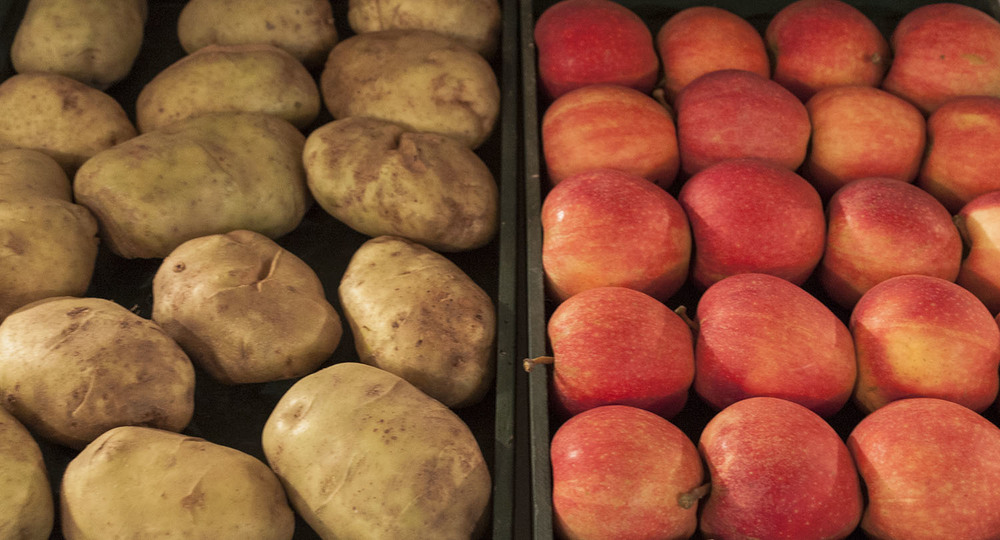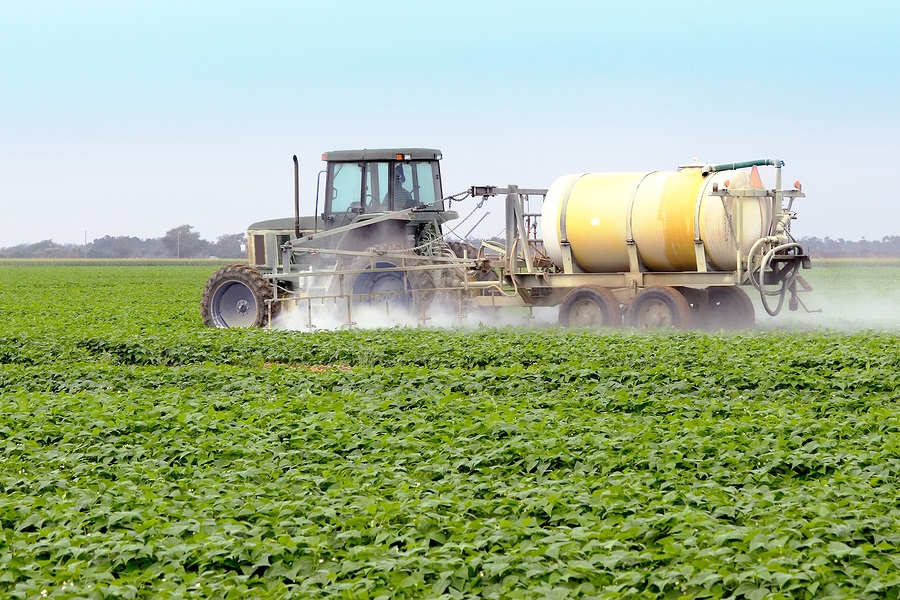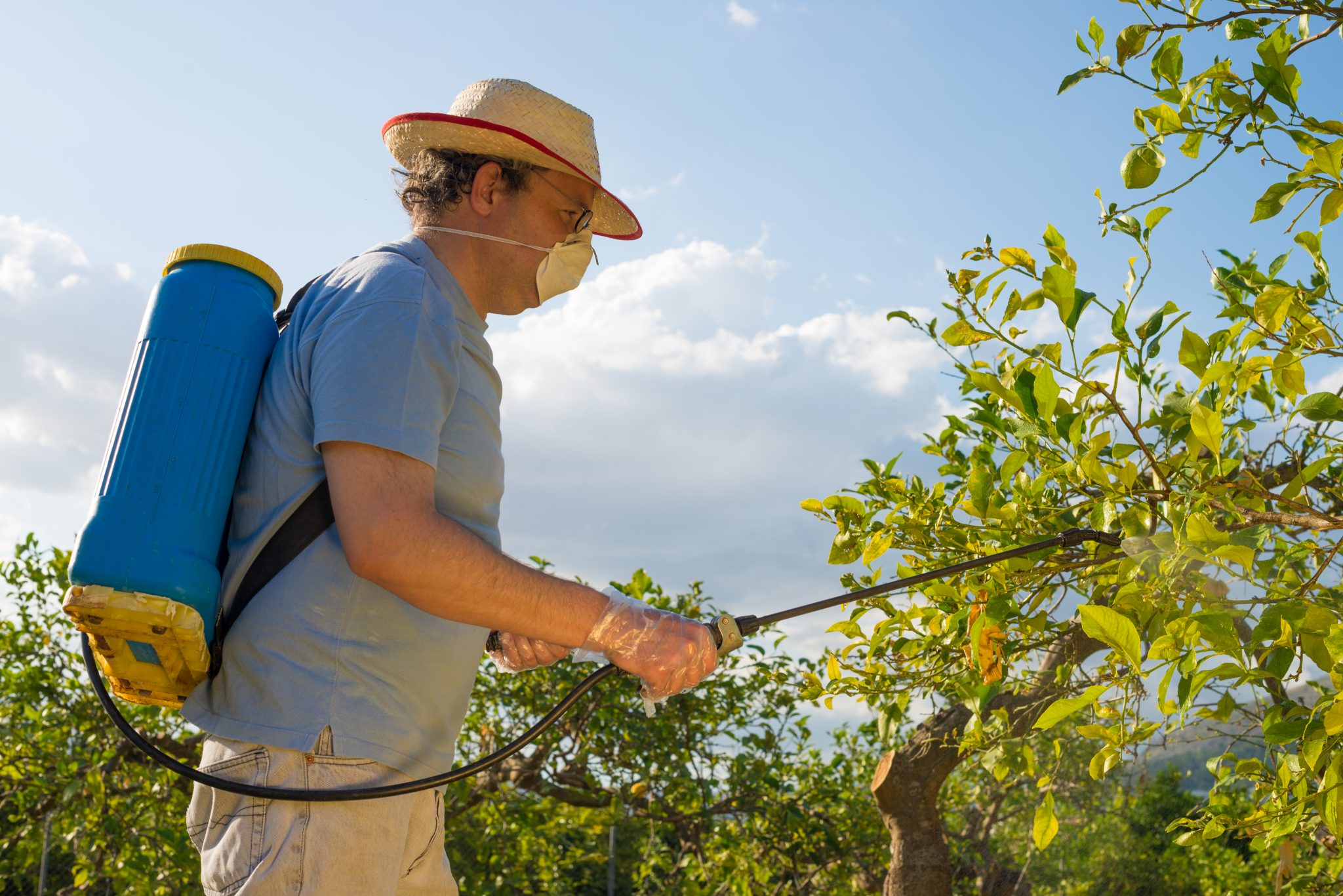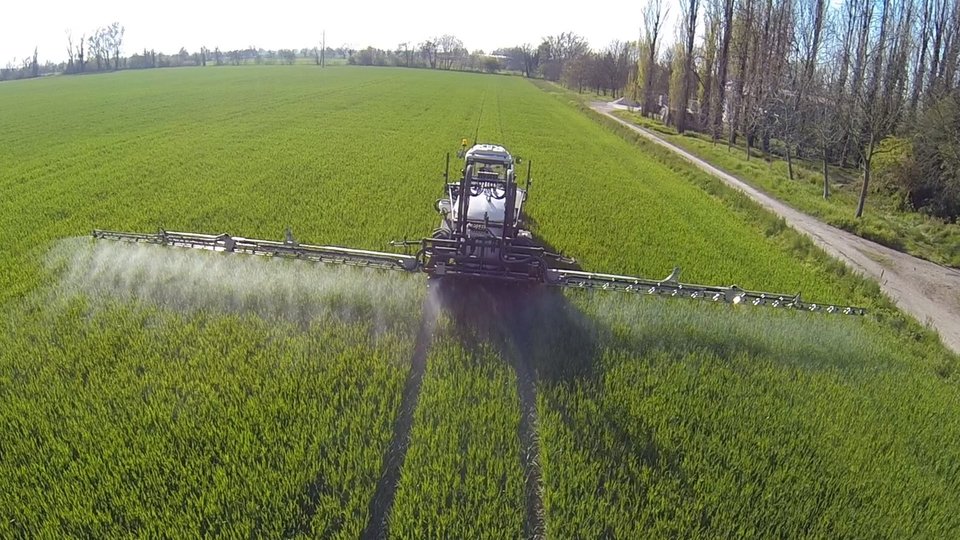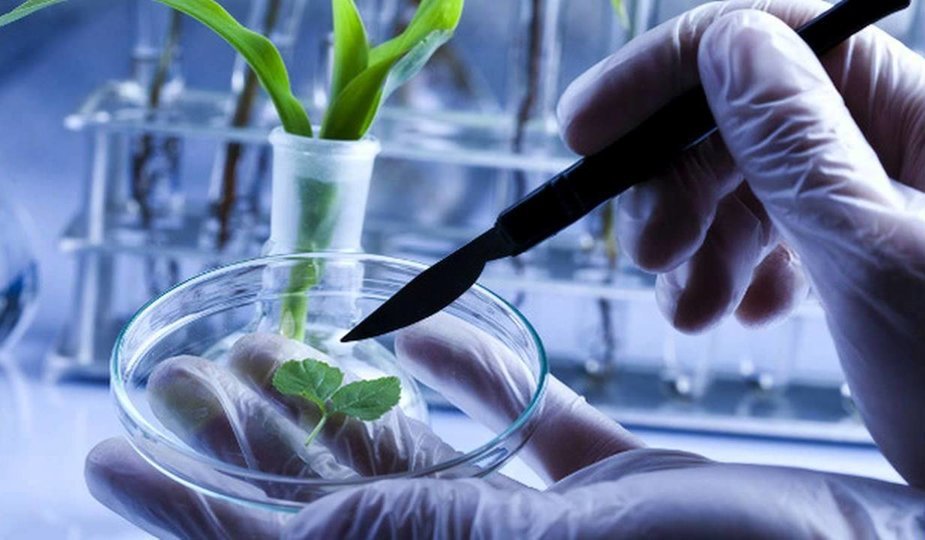Pesticides in fruit and vegetables reduce fertility and live birth outcomes
 (Naturalhealth365) Experts have long recommended that women trying to conceive through in vitro fertilization (IVF) adopt healthy lifestyle habits – such as stopping smoking, maintaining healthy weight and using natural stress relief techniques. Now, recent research has demonstrated that a woman’s chances of success could be increased by avoiding the consumption of fruits and vegetables containing a high amount of toxic pesticides.
(Naturalhealth365) Experts have long recommended that women trying to conceive through in vitro fertilization (IVF) adopt healthy lifestyle habits – such as stopping smoking, maintaining healthy weight and using natural stress relief techniques. Now, recent research has demonstrated that a woman’s chances of success could be increased by avoiding the consumption of fruits and vegetables containing a high amount of toxic pesticides.
Read on to learn about the startling findings from the new study – and to discover how to minimize your own exposure to pesticides in produce.
Pesticides on fruits and vegetables are bad news for women wanting to become pregnant or have healthy children
In a new study conducted by researchers at the prestigious Harvard T.H. Chan School of Health and published in JAMA Internal Medicine, researchers evaluated dietary exposure to pesticides of 325 women undergoing assisted reproductive technologies.
Researchers found that women who daily ate more than two servings of “high pesticide” fruits – which include strawberries, spinach, nectarines and grapes – were less likely to become pregnant than women who consumed an average of a single serving a day.
In fact, the women with the highest amounts of dietary exposure to pesticides were 18 percent less likely to become pregnant – and 26 percent less likely to have a live birth – than women in the group with the lowest daily exposure.
The researchers estimated that the simple action of exchanging one high-pesticide fruit or vegetable a day for a lower-pesticide option could increase pregnancy rates by 79 percent – and the odds of a live birth by 88 percent.
Although animal studies had already shown that pesticide exposure is associated with higher rates of miscarriage and fewer live births, the new study is the first to examine the effects of dietary pesticide ingestion on reproduction in humans. And, while it doesn’t prove that dietary exposure to pesticides affects fertility, it does establish a link between exposure and lower IVF success rates.
It’s a “no-brainer” – why eating organically grown food matters
Senior study author Jorge Chavarro, a professor of nutrition and epidemiology, admitted that the results took him by surprise. Saying he had always been “skeptical” of the health impact of dietary exposure to pesticides, he acknowledged that he had not expected to find a connection between exposure and the ability to get pregnant.
Chavarro said that women trying to conceive should limit their intake of high-pesticide fruits and vegetables – by opting for organically grown fruit over conventionally grown produce.
If eating conventionally-grown fruits and vegetables, he advised choosing the types of produce that tend to be lower in pesticides.
Environmental group lists the new “Dirty Dozen” and “Clean Fifteen”
The Environmental Working Group, a non-profit organization dedicated to empowering people to live healthier lives, compiles a yearly list of the “Dirty Dozen” and the “Clean Fifteen” – the fruits and vegetables highest and lowest in pesticide residue.
The EWG reports that strawberries – which can contain up to 20 different pesticides – top the 2017 “Dirty Dozen.”
Spinach, which contains more pesticide by weight than all other produce tested, is a close second, with three-quarters of the samples containing residue from permethrin – a neurotoxin at high doses.
In descending order of pesticide contamination, the remaining “Dirty Dozen” are: nectarines, apples, peaches, pears, cherries, grapes, celery, tomatoes, sweet bell peppers and potatoes.
The “Clean Fifteen” – foods most likely to be low in pesticides – are sweet corn, avocados, pineapples, cabbages, onions, frozen sweet peas, papaya, asparagus, mangos, eggplant, honeydew melon, kiwi, cantaloupe, cauliflower and grapefruit.
(Note: the EWG reports that a small amount of the sweet corn and papayas sold in the United States are produced from GMO seeds – another reason to look for foods labeled “USDA Certified Organic.” By law, organic foods can’t contain GMOs.)
Volumes of scientific literature attest to deadly hazards of pesticides
Reduced reproductive health is not the only harm caused by long-term exposure to pesticides.
The Pesticide-Induced Disease Database, compiled by the advocacy group Beyond Pesticides, includes studies from around the world linking pesticide exposure to a jaw-dropping variety of serious diseases.
Pesticides, including the weed killer glyphosate, have been associated with 30 different types of cancer, particularly Hodgkin’s lymphoma and non-Hodgkin’s lymphoma. Researchers report that rates of lymph system cancers have doubled since the early 1970s, when the introduction and use of synthetic chemicals and pesticides became widespread.
In addition, many researchers believe that widespread exposure to organophosphate pesticides is driving the nation’s current epidemic of type 2 diabetes. Plus, pesticides have been linked to neurodegenerative diseases.
Rates of Alzheimer’s disease have skyrocketed in recent decades, corresponding with the country’s increasing use of pesticides. And, one eye-opening study showed that subjects were found to increase their odds of Parkinson’s disease by 47 percent through frequent use of household pesticides.
Other conditions linked with pesticide exposure include birth defects, asthma, allergies and developmental disorders.
In light of this information, choosing organic foods, which are grown free of synthetic fertilizer, pesticides, hormones and antibiotics, is the only sane choice – whether you are trying to conceive or not.
As for Harvard researcher Jorge Chavarro, the formerly skeptical scientist admits to a change of heart. “I’m much more likely to buy organic apples (now),” Chavarro commented.
Sources for this article include:
Harvard.edu
JAMANetwork.com
NaturalHealth365.com
NaturalHealth365.com
EWG.org
EWG.org
GMOs & Dangerous Chemicals
Natural Health 365
Natural Health 365 is a premium source of trending and popular health-related news, science, testimony & research articles on the most up to date and relevant natural health information. The articles on GMOs & other Dangerous Chemicals found herein are meant to inform and advise our site visitors on steering clear of foods and other consumer products that contain Genetically Modified Organisms and/or Chemicals that are DANGEROUS to human health.
Join thousands of daily visitors staying informed and involved on Natural Health 365! We seek out scientific solutions with proven results and it is our mission to keep you up to date on the latest information! Articles range in topic from vaccination overviews to linking specific, common vaccines to the development of autism. We also aim to educate the public on the dangers of vaccines and provide in depth analysis of political vaccination bills.
Read Some of Our Most Popular Articles
Consumer Alert: GMO Apples & Potatoes are a Public Health Risk, Roundup Herbicide & GMOs Destroy Your Digestive System, US Senate Votes to Shut Down GMO Labeling Bill, Monsanto Lies Revealed.
GMO & Dangerous Chemicals are two of our major post categories on www.naturalhealth365.com and contain over 90 articles that cover a wide range of subjects; including but not limited to…
GMOs & Dangerous Chemicals
More Articles on GMOs & Toxic Chemicals
In addition to publishing articles concerning the most up-to-date information on GMO Foods, Research, & Toxic Chemicals that have dangerous and unintended consenquences, we also aim to connect healthy lifestyles, non-GMO diets and balanced consumption of dietary supplements to lifelong health and adding happy years to your life.
DID YOU KNOW?
Did you know that Monsanto is one of the most profitable entities on the planet, while the farmers that make them so successful are barely able to feed their families? Or that mono-cropping erodes our top soil so that no vegetables, grains, or fruits will grow in the wake of a mono-cropped field? Perhaps you didn’t know that organized events to protest Monsanto and their signature chemical, Roundup? You can find all of that information and more right here on Natural Health 365.
Join Our Email List
Each day, visitors sign up for our weekly informative news sent directly to their email or RSS feed agregator. We send out three weekly emails keeping you informed and involved on the latest Natural Health News, information about our FREE SHOWS and updates on your favorite topics including Food & Nutrition, Cancer & Heart Disease, Vaccines & Autism, & – of course – GMOs & Dangerous Chemicals!
You can also check out our VIP member area, The Inner Circle, where you get access to thousands of recorded interview (audio/video), pod casts, & literature by some of the worlds foremost experts on Natural Health and Treatments that could save you thousands! Learn how to REVERSE disease without the use of toxic and expensive medications.
Natural Health 365 also is a venue for webinars on various topics, has a flourishing e-commerce store where you can purchase vitamins, pro biotics, supplements and unique products such as Grazing Goat Whey Protein.
Grazing Goat Whey Protein™ is formulated exclusively for the health-conscious consumer looking for the finest whey protein nutritional supplement on the planet.* Best of all, this goat whey protein comes from goats that graze – 365 days per year – on pesticide and chemical free pastures. No hormones, antibiotics or pesticides are used – ever. This product is non-GMO and gluten free.
The post Pesticides in fruit and vegetables reduce fertility and live birth outcomes appeared first on Natural Health 365.
Read Original Article: Pesticides in fruit and vegetables reduce fertility and live birth outcomes »
Powered by WPeMatico


